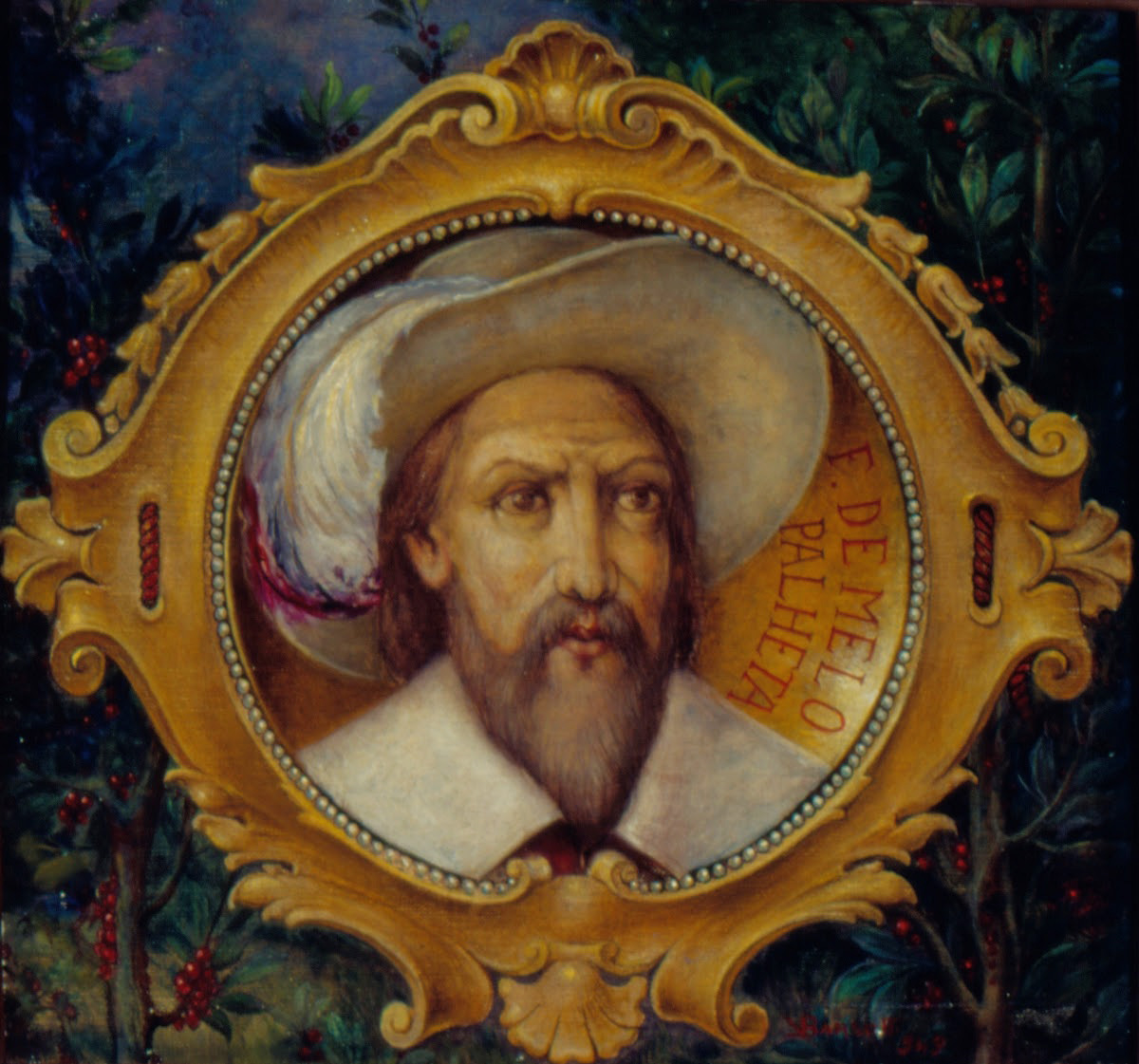The coffee plant was first introduced to Brazil in 1727 by the Portuguese–Brazilian officer Francisco de Melho Palheta. Palheta had been sent to Cayenne, in French Guiana, to act as an intermediary in a border dispute. The governor of Maranhão and Grão-Pará, João da Maia Gama, appointed him to settle the issue but also gave him some additional instructions: “If you happen to enter a backyard or garden where coffee is growing, see if you can hide away a few beans under the pretext of tasting the fruit” (Taunay 1943).
 Francisco de Melho Palheta, the Portuguese–Brazilian officer credited with bringing coffee to Brazil.
Francisco de Melho Palheta, the Portuguese–Brazilian officer credited with bringing coffee to Brazil.
At the time, the French were prohibited from selling coffee seeds that would be capable of germinating and prohibited in general from doing business with Brazilians or Portuguese, so the precious seeds had to be acquired in great secrecy. According to popular legend, Palheta had no luck taking cherries from his host’s flower beds but instead cultivated a fruitful relationship with the French governor’s wife. She was so smitten by his gallantry, she presented him with a generous parting gift — a bouquet, secretly stuffed with coffee seedlings.
The bouquet must have been heavy indeed, since in 1733 Palheta wrote to the Portuguese king saying that he had managed to obtain more than a thousand seeds and four coffee seedlings on his trip (Cesar 2018). On his return from Cayenne, the seeds were distributed among farmers in Palheta’s native Pará, and the Brazilian coffee industry was born.
For the next few decades, coffee remained a minor crop in Brazil, compared with sugar. During the eighteenth century, the coffee industry was dominated by plantations on Caribbean islands, particularly the French colony of Saint Domingue (now known as Haiti), which by 1788 produced fully half of the world’s coffee (Pendergrast 2010).
The year 1791 saw the beginning of the Haitian Revolution, an uprising against French colonial rule. It began with a revolt by enslaved African workers and eventually led to the abolition of slavery and the establishment of Haiti as an independent state.